Fundão is currently an epicentre of foreign investment in the country. ECO went to know four stories of three different nationalities, who decided to abandon their origins.
Parivartana. Change. Verandering. Mudança. Saroj Duwadi left Nepal to work at Altran. Annie and Erwin left the Netherlands to search for a more sustainable life. Laura and David’s family, tired of the big city, left the United Kingdom for Portugal. Michele and David did the same. What do so many names and countries have in common. Two things: they changed their lives, and they moved to Fundão.
Although Lisbon, Oporto and Faro are more popular places, the inland areas of the country have increasingly been able to attract foreign migrants. As a member of the OECD, Portugal has the second fastest immigration growth rate, in a range far above the average for developed countries. In 2018 there were 480,300 citizens with a valid residence permit, resulting in an increase of 13.9%, the highest figure ever recorded by The Foreigners and Borders Service (SEF). The district of Castelo Branco, in the centre of Portugal, is an example of the attractiveness of the interior of the country; in 2018 4,318 foreign residents according to SEF data, an increase of 6.9% over the previous year.
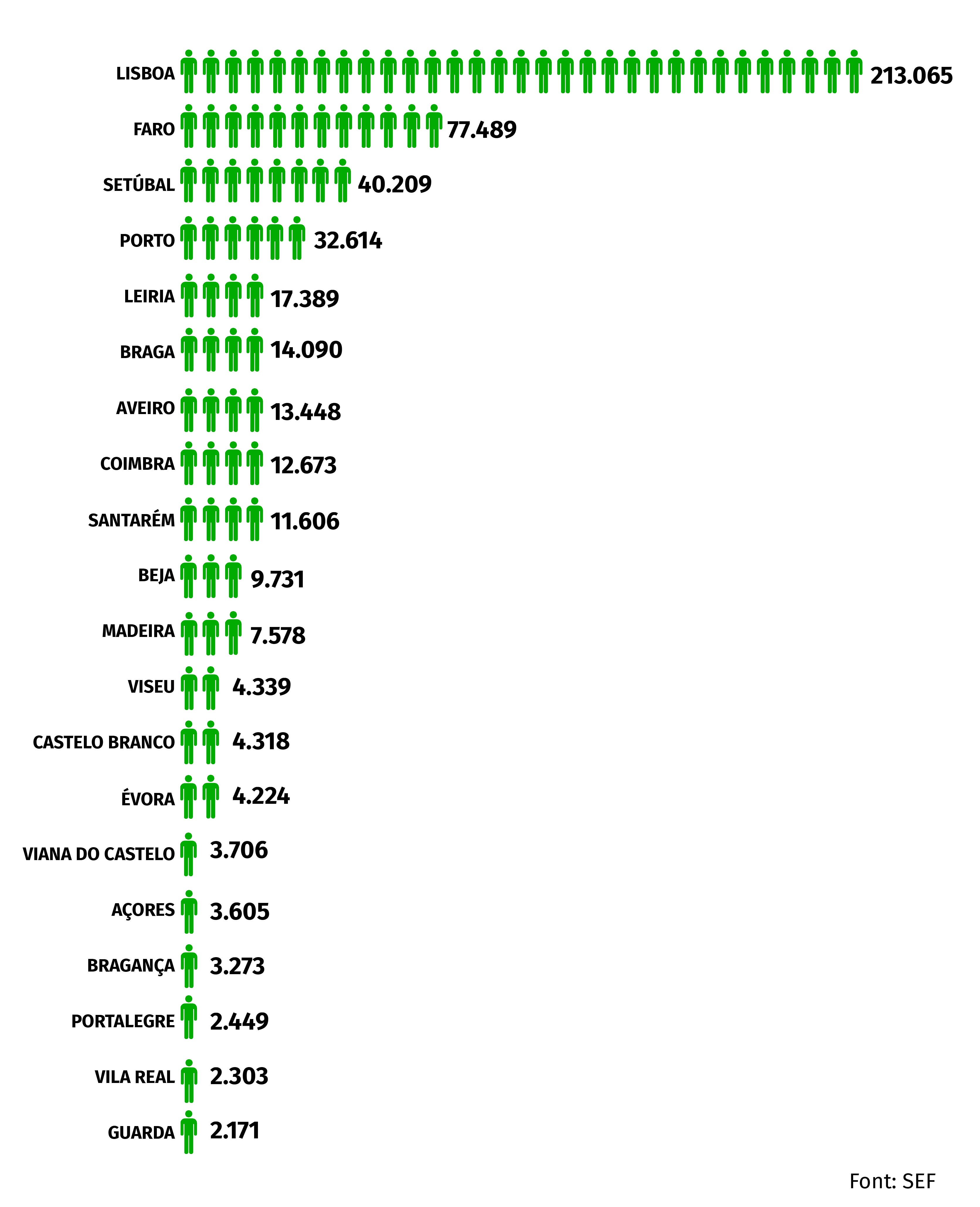
“Here we have an area of low population density and in fact, the migratory balances are completely vital for possible demographic sustainability that, until today, did not exist.” Says Paulo Fernandes, mayor of Fundão, in an interview with ECO.
Fundão, the new epicentre of technological development
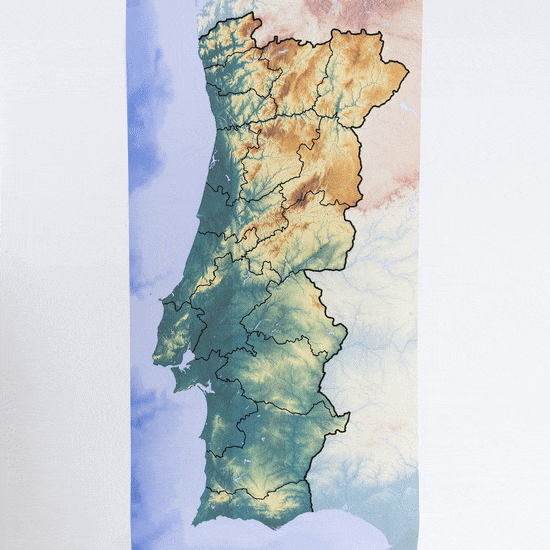
known by many for its cherries, has in recent years strongly focused on supporting immigrants who want to settle in the interior. With about 13,000 inhabitants, the town has 669 immigrants of 57 nationalities.
In addition to immigration contributing positively to the demographic increase, foreign investment has also gained a relevant role in the local economy.
“We are in a very interesting phase in relation to something as difficult as to the internationalization process, because it has several dynamics and several layers. For example, 7 years ago we started with a group of producers who wanted to make local agricultural products known in markets around the world,” Paulo Fernandes explains. According to the mayor, this experience has attracted the attention of countless agro-industrial investors from all over the world, such as the Middle East, Israel, Switzerland, France and Brazil. In the latter case there have been “Brazilian investors and funds interested in the agricultural area and in creating new sectors,” he revealed.
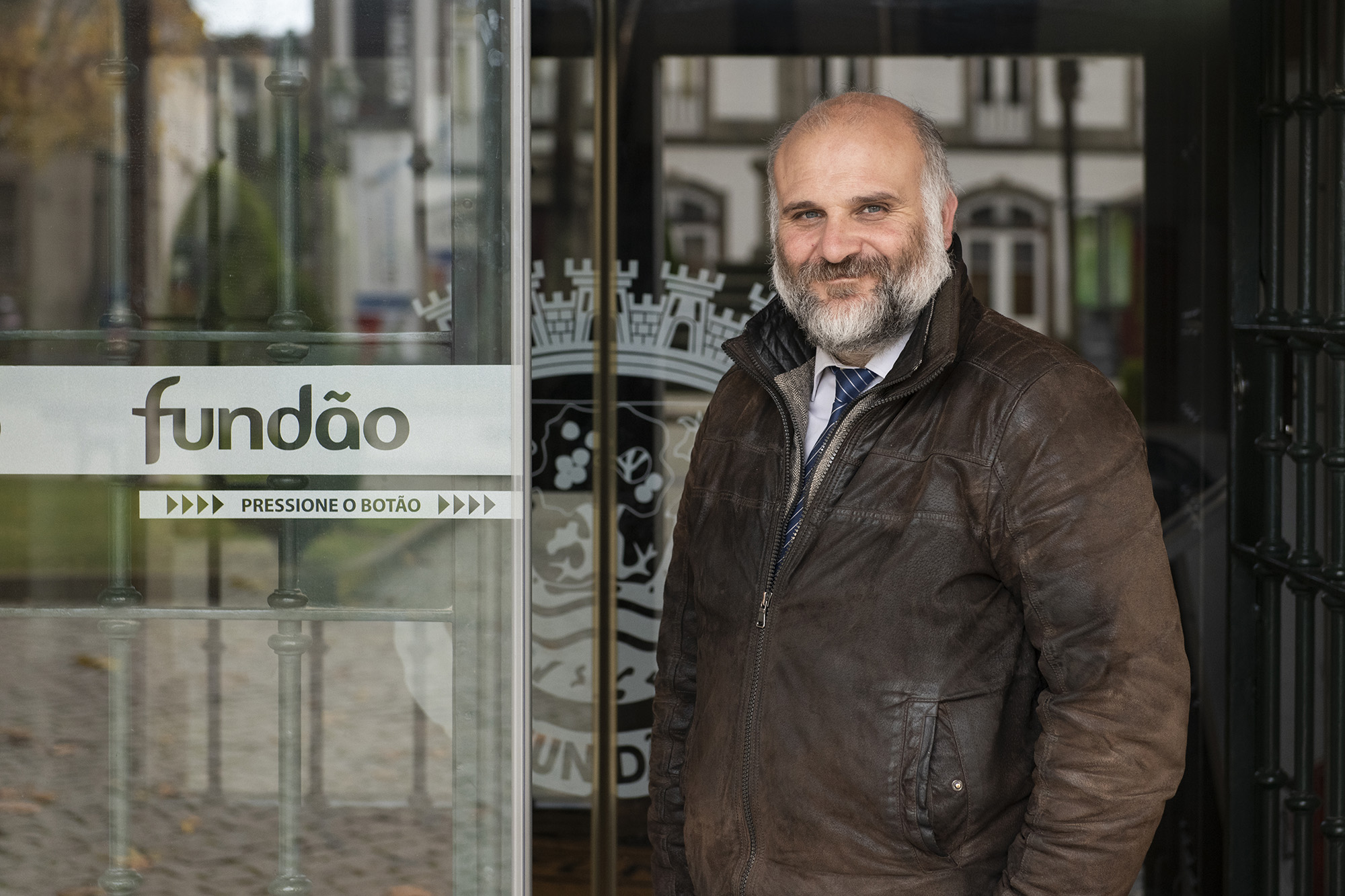
“These new communities have a clear social impact and also a property impact. We are talking about countless plots of land and property that were vacant and which today are cultivated and managed, so creating an economic impact. It means that in even more rural areas there is an exponential increase in citizens choosing us for their permanent residence,” the mayor of Fundão notes.
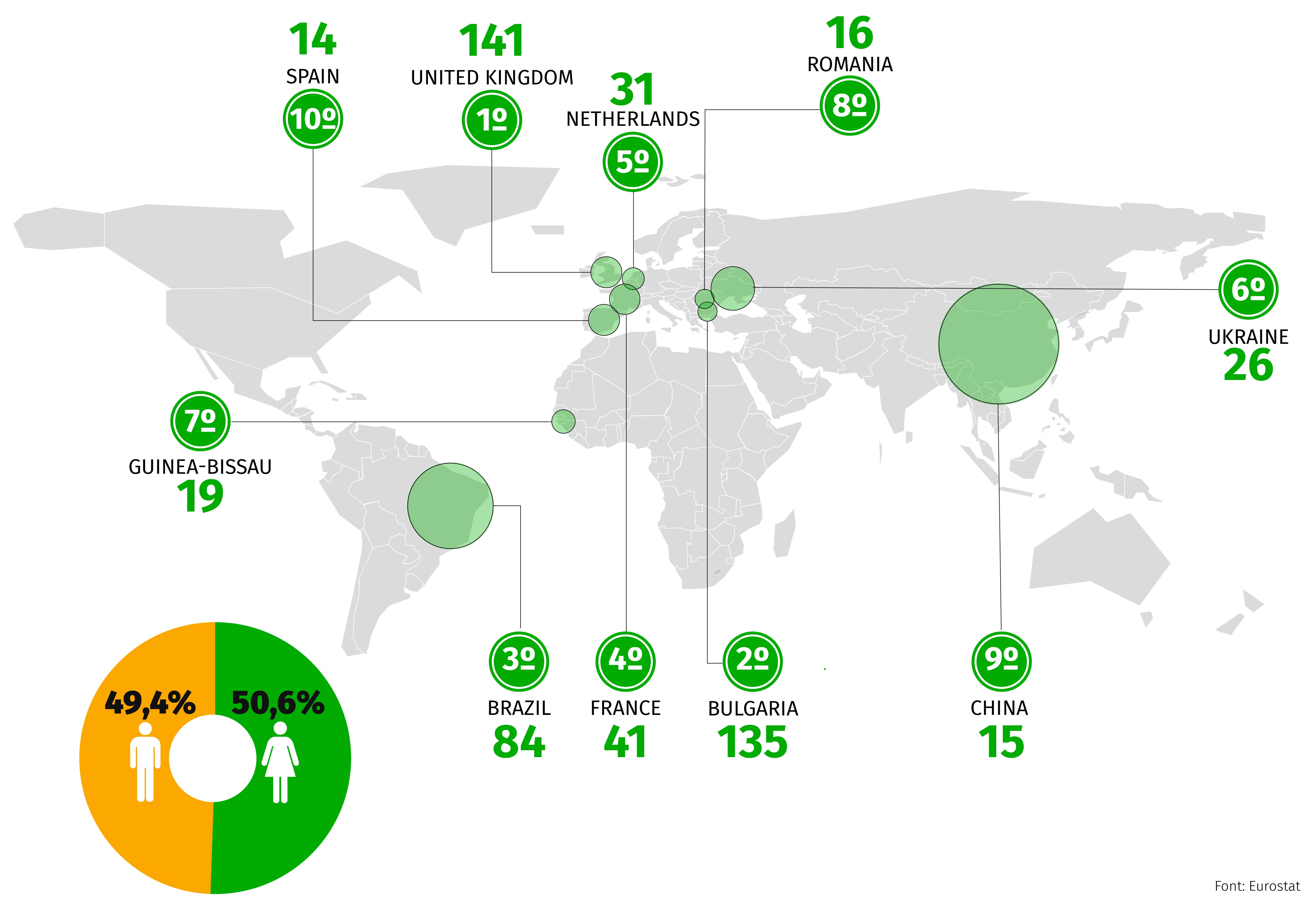
Although the municipality is located in a rural environment, the development of the technological sector with the help of foreign capital has also become a focus in the region, including, as an example, the implementation of computer code learning (programming) in primary school. Recently, the American multinational IBM invested in the rural “Silicon Valley,” through the installation of a Technological Innovation Centre in Fundão. The activity of this project will be focused on the development and management of energy solutions.
“About 6 years ago we started to position the council in the ICT area after some very interesting – and very revealing – work, which indicated that inland issues depend on the scale. If we go to a more global scale, the inland or coast issue is relative,” adds the mayor, pointing out that “…in the technological sector, we have no problem being an inland region.”
The multinational company in engineering and R and D services, Altran, also bet on the municipality of Fundão and is currently the largest technological centre in the region; 700 engineers of countless nationalities work in the city and, for the most part, in this company.
Saroj Duwadi: “The Country has always been in contact with other ethnicities.”

Saroj Duwadi, a computer engineer, decided to leave Nepal in 2017 after having had the opportunity to work on a startup, through an international exchange programme, in Lisbon. “At the time I was heading to Portugal I didn’t know anything about the country at all, the only thing I knew was Cristiano Ronaldo” notes Duwadi in a conversation with ECO.
Even so, the computer engineer did a brief survey of the country; he found that Portugal had just come out of a financial crisis and that large multinationals like Google were positioning themselves.
When he arrived in Lisbon, the Nepalese admits he didn’t have much trouble. Only the language was an obstacle. “Almost a year later, when my exchange was about to end, I started looking for a job in the country and found a job offer at Altran, in the Fundão area,” explains Duwadi.
The Nepalese people were very well received in the community, both by the company – thanks to the variety of nationalities of the employees – and by the city council. “Only in my department I work with Argentinians, Brazilians, Indians, Nepalis, Russians, and of course, Portuguese,” he adds.
At the start of Saroj’s journey in the city, he was offered free Portuguese lessons, events to integrate with the locals – where he was introduced to Portuguese culture – as well as an affordable rental programme, in which the town council finances around 50% of the rent for two years.
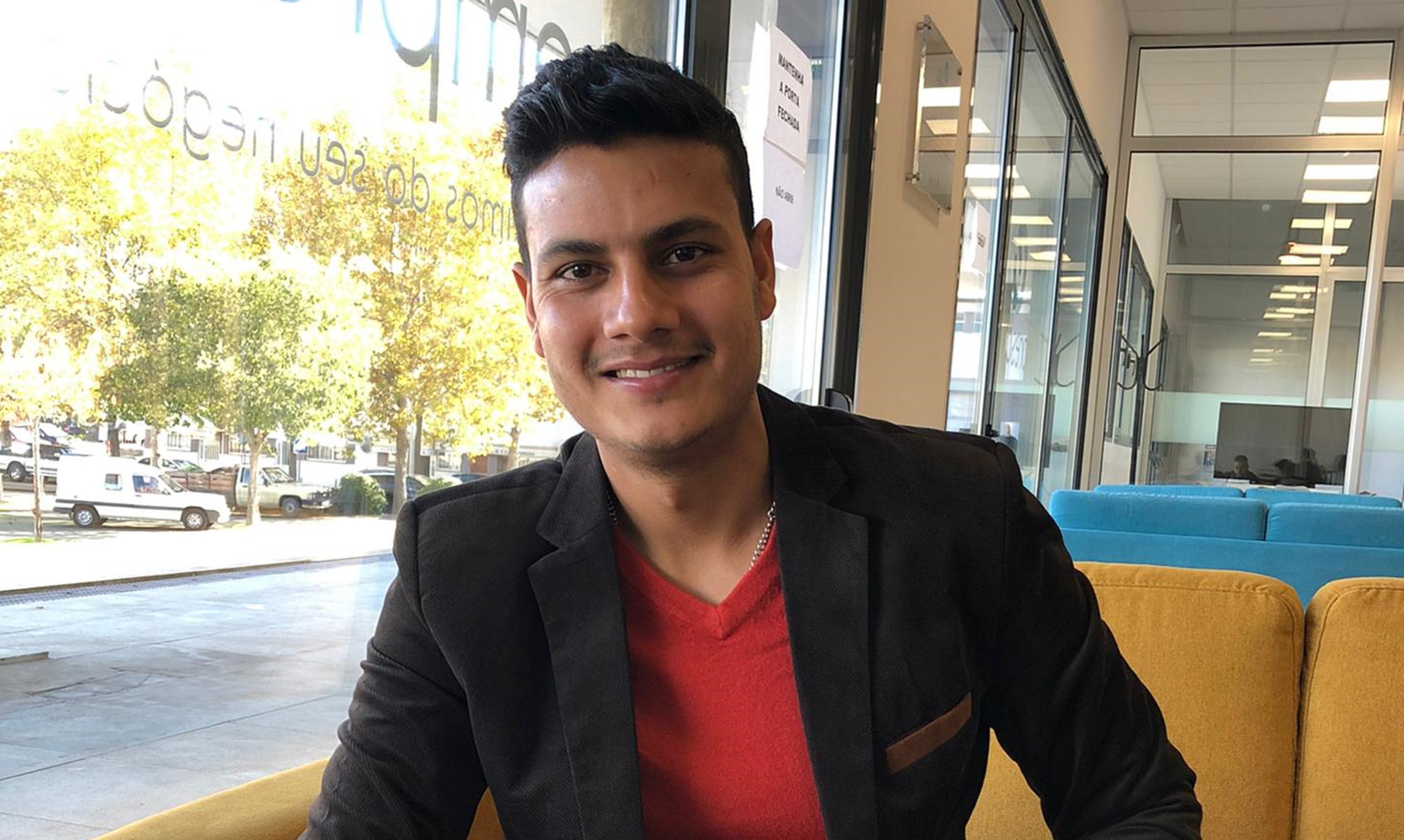
“We were perhaps one of the first municipalities in the country to set up an office to support immigrants and pioneers in the region. It has evolved and today we have a migration support office,” Paulo Fernandes says of the support given to immigrants. The leader also says that Fundão has a municipal plan for immigration which provides several facets that seek to promote integration, “…such as the creation of Portuguese language courses, cultural events and even civic education, often for legal reasons.”
“For highly skilled labour we have a supported rent regulation. It’s a rental programme that began in the historic centre of Fundão and then began to expand, because we are having a lot of success,” the mayor notes. With this programme, foreign and domestic workers have, during the first year, access to housing in the city. For example, access to a property equivalent to a T2, for 150 euros.
“I usually say jokingly that there is always good news when the data on the value of a square metre in Lisbon and Oporto comes out. Whenever it goes up, it is good news for us because it means we are more competitive,” Paulo Fernandes considers.
In rural areas, there is also the benefit of reducing the rustic IMI by around 50%, and the IMT can also be small. As a result, it is enough for anyone to start an agricultural activity and create at least one job.
Despite all the benefits, the computer engineer considers Portugal “quite bureaucratic,” and warns that the country needs to be modernised in some aspects, especially when it involves staying in the country. “If I want to renew my permanent residence permit, I have to wait nearly 6 months. Besides, the documents are all in Portuguese… the Government should take these situations into account,” the engineer says.
People are what Saroj Duwadi has highlighted most since arriving in Portugal, feeling part of “society”. “I think the Portuguese have this kind of mentality because the country has always been in contact with other ethnicities and religions throughout its history,” he stresses.
Maas family: “I recommend this country for the sake of freedom.”
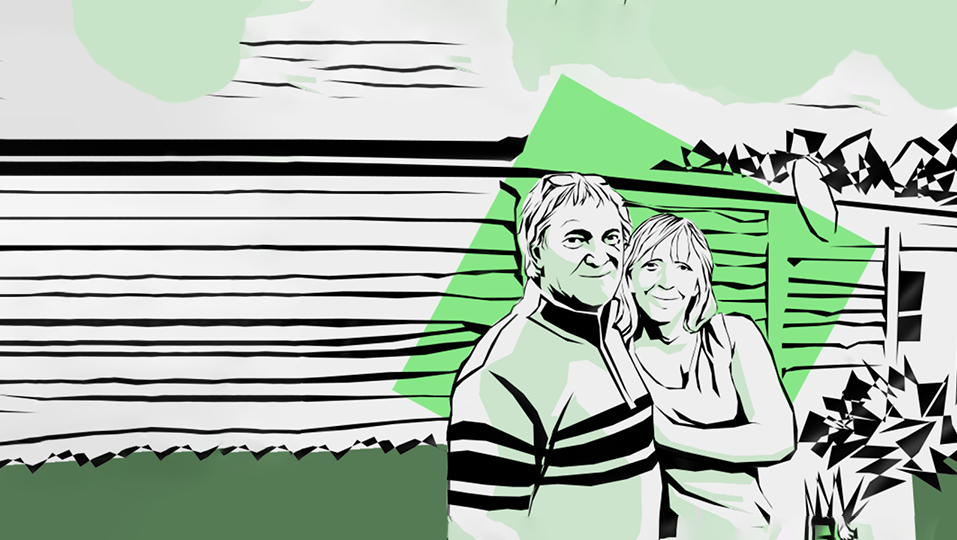
Annie and Erwin Maas emigrated to Portugal in 2015 to change their lives and build a sustainable home. “They teach you to have a job, a good salary, buy a car and everything that goes with it. All this will bring you happiness, but as soon as you get all this, we discover that there has to be something more to be happy,” Erwin Maas tells.
After leaving stable jobs, they sold the house and left the Netherlands. Countries like Greece, Spain, Albania and Hungary were considered, unlike Portugal, which was never an option. “In the Netherlands, you rarely hear about the country, except during the fire season,” he says.
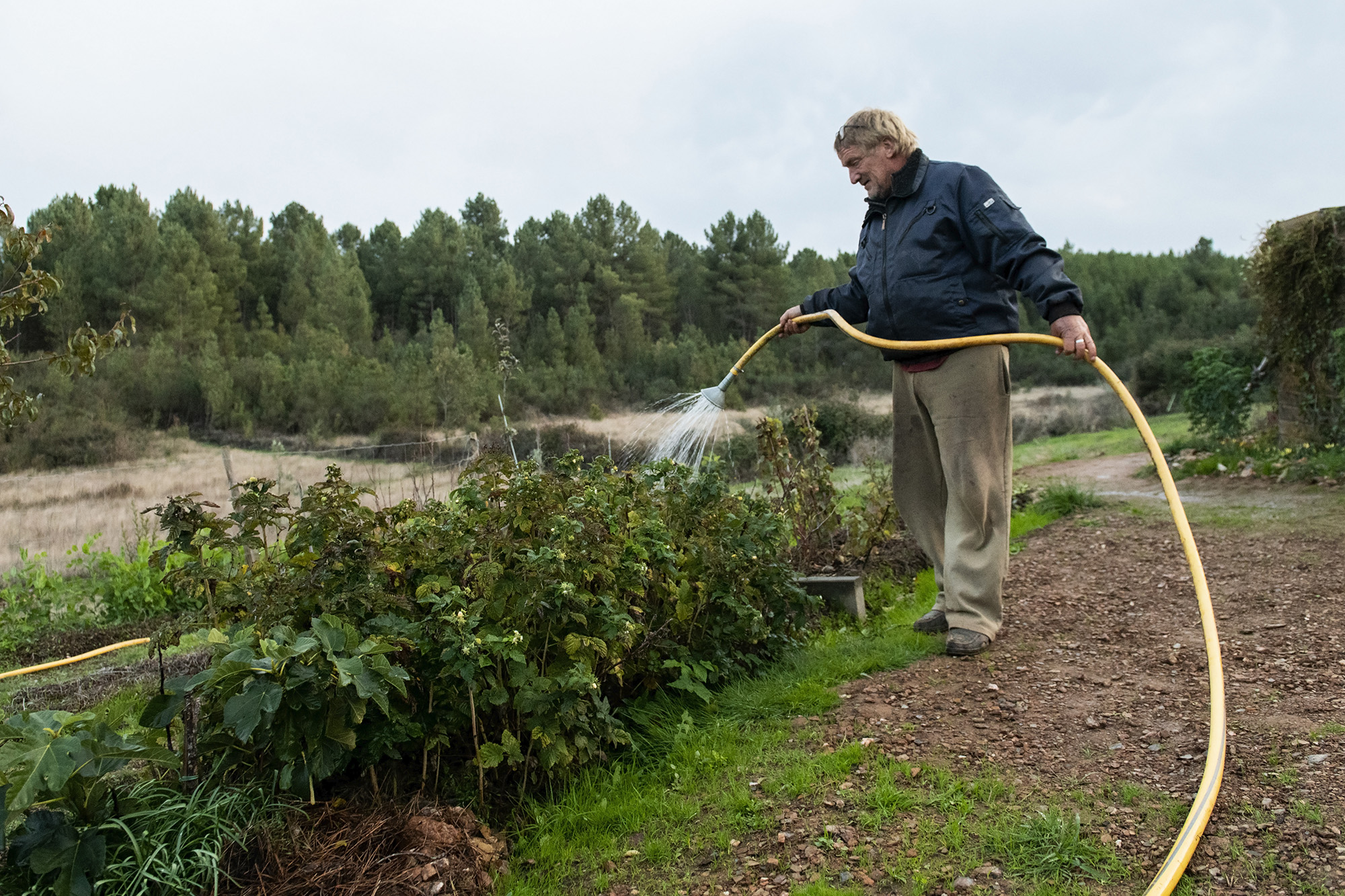
Because they wanted to engage in organic food production and had an interest in sustainable living, the municipality of Fundão provided the conditions for the Maas family to realise their aspirations. “Many of the communities that come to the municipality are connected to sustainable agricultural production and are linked to organic production or permaculture. We promote markets in the municipality because there are ways of entering value chains and creating what could be new audiences,” the Fundão mayor says.
Like Saroj, the Maas family has had access to Portuguese and Portuguese history classes, as well as the opportunity to integrate into the local community. Even though they didn’t have much trouble arriving, Erwin points out that the financial support he receives in the Netherlands is considered illegal from the European Union’s point of view. This prevents access to Portuguese social security.
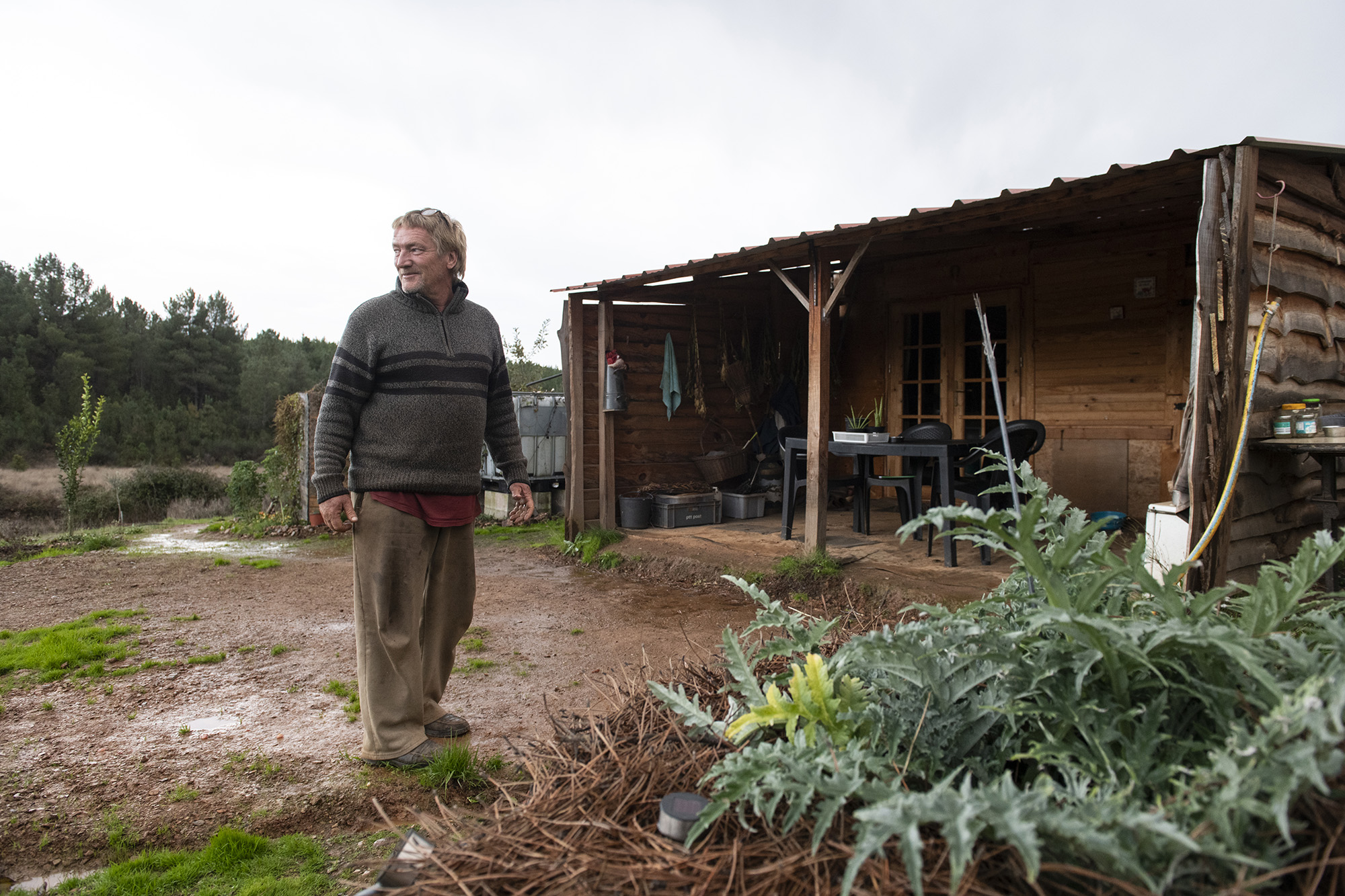
In the Netherlands, everyone pays taxes regardless of what the household earns annually. A distinct reality for Maas is that “…in Portugal, below 8,500 euros you don’t have to pay taxes”: This is one of the few benefits he has.
The Dutchman not only notices this difference between the two countries. “The salary may be higher, but there are more expenses and problems, which causes more stress for people. In Portugal it is different,” he stresses but adds that the two major Portuguese cities – Lisbon and Oporto – have the same problems as the Netherlands.
Still, Portugal is still a safe bet for foreign investors, according to Erwin. “I think it’s a good time to buy property in Portugal,” he adds, as in his view, the country is in the process of evolving in Europe and in the future prices will rise.
Armour and Summers family: “This area (of Portugal) is fantastic especially for British retirees.”

David Summers family, Laura Armour and her son left the UK in August 2018 and headed to Fundão to escape the city. “Unlike the United Kingdom, in Portugal, we manage to have more space to live with less purchasing power. As the salary is lower it´s possible to have a relatively good life,” David considers.
Having retired after a 35 year career in the car industry, he found Portugal a greener country than he hoped for during a holiday in Albufeira, in the Algarve. “This area is fantastic, especially for British retirees. It’s such a beautiful place, and especially cheap for us,” Sommers tells.
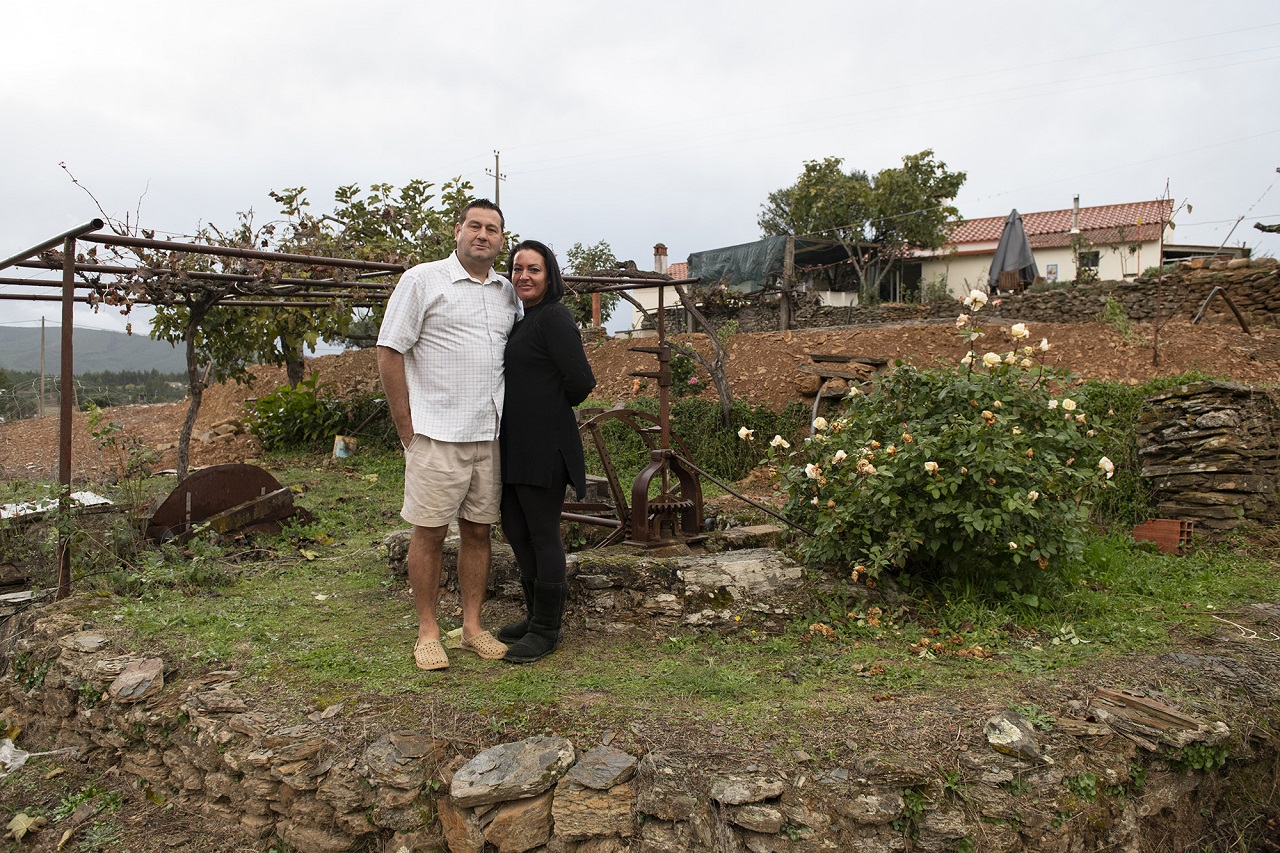
Spain was soon out of the question for the couple because they didn’t want to move from “England to little Britain because in recent years many British have decided to move there.”
“We were excited about the country and decided to look for a place inland. We started looking for land in the Pedrogão Grande area, but we heard that in this area where we are now (District of Fundão) it is cheaper and ended up staying here,” says David Summers.
With a child to educate, they experience difficulties in learning the Portuguese language. “We decided to put Laura’s son in a Portuguese school rather than a special English school so he could learn Portuguese and make friends. It may be difficult at first, but it will be useful for him for the future,” he adds. Even so, he stresses that “…things aren’t so difficult in terms of communication these days, because the second most spoken language in Portugal is English. Proof of this is if you turn on the television, you hear English all the time.”
The high level of “paperwork” and the price of electricity are some of the less positive aspects highlighted by Summers. “Prices are so high that we bought some solar panels for our house to reduce the bill.” As far as tax benefits are concerned,” he stressed the lack of information about them.
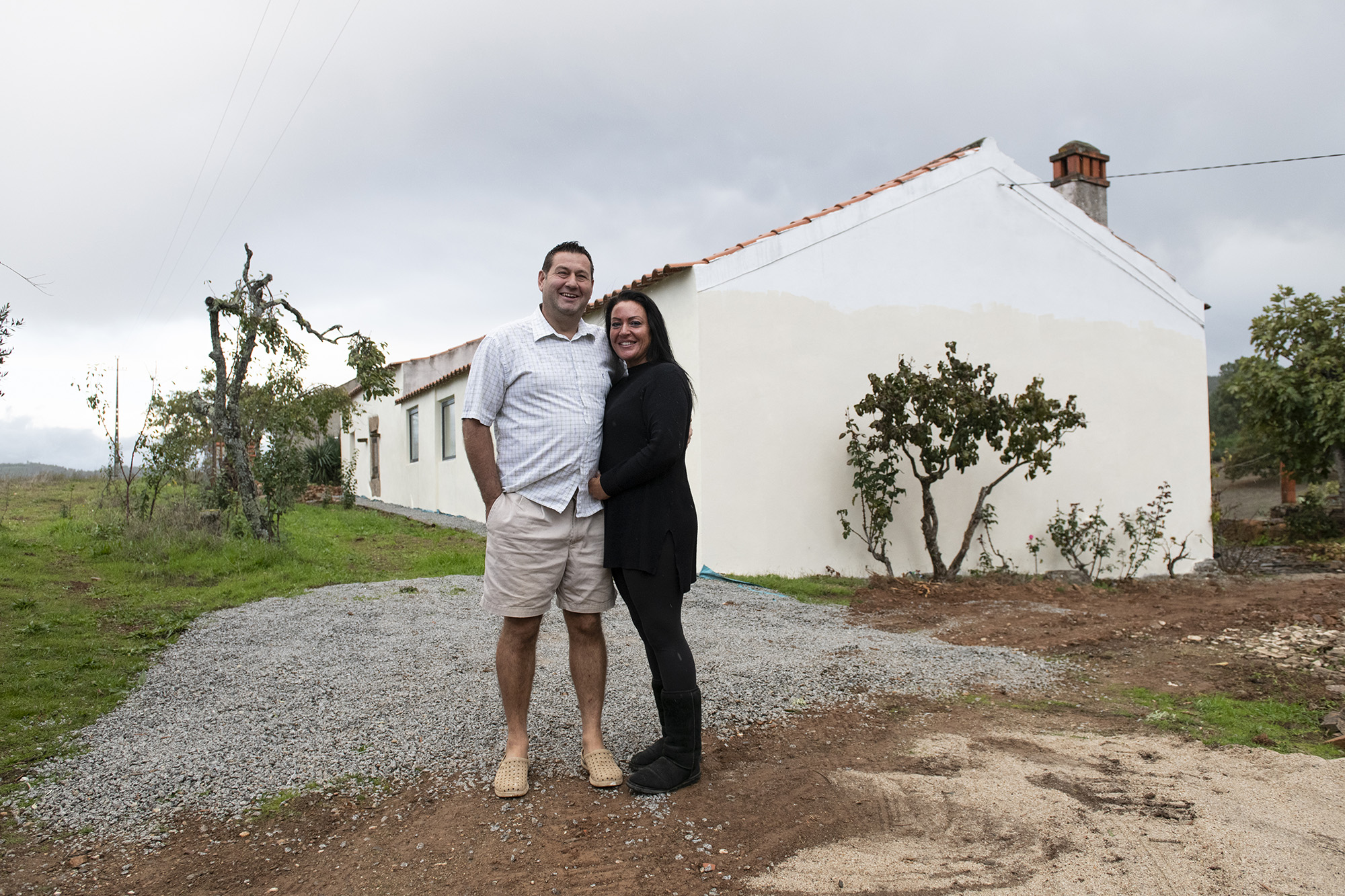
The future of the family is ideally to stay in Portugal, and they have no intention of returning to the United Kingdom, where they identified that crime has increased, as has an insecurity. David also says he is not afraid of the effects of Brexit because “Portugal and the United Kingdom have a historical relationship. Living in this area, I seem to have regressed for several decades and I am in England from the 1980s, and I see that as something very attractive. We can leave the doors open and the people in this community are relaxed,” he concludes.
Knights family: “The U.K is deteriorating every day.”
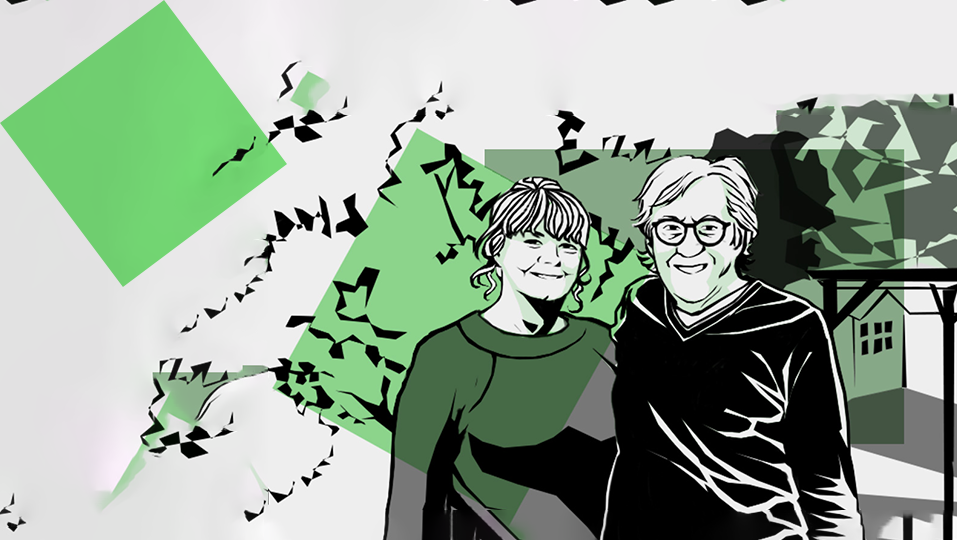
Michele and David Knights, also British and retired, chose the interior of Portugal to enjoy their retirement. Among the Mediterranean countries, the idea of Spain was considered, but David´s knowledge as a former geography teacher pointed to “…the problems that exist in the south of the country such as drought and pressure on water supply,” which provided a strong negative influence on their choice.
As a result, the couples’ attention was focused on Portugal. “When we started looking at the regions, we decided we didn’t want to live on the coast – let alone in the Algarve, which is more like little Britain,” David recalls. They opted for an inland area in the district of Fundão and were pleasantly surprised at how it reminded them of England in the 1960s.
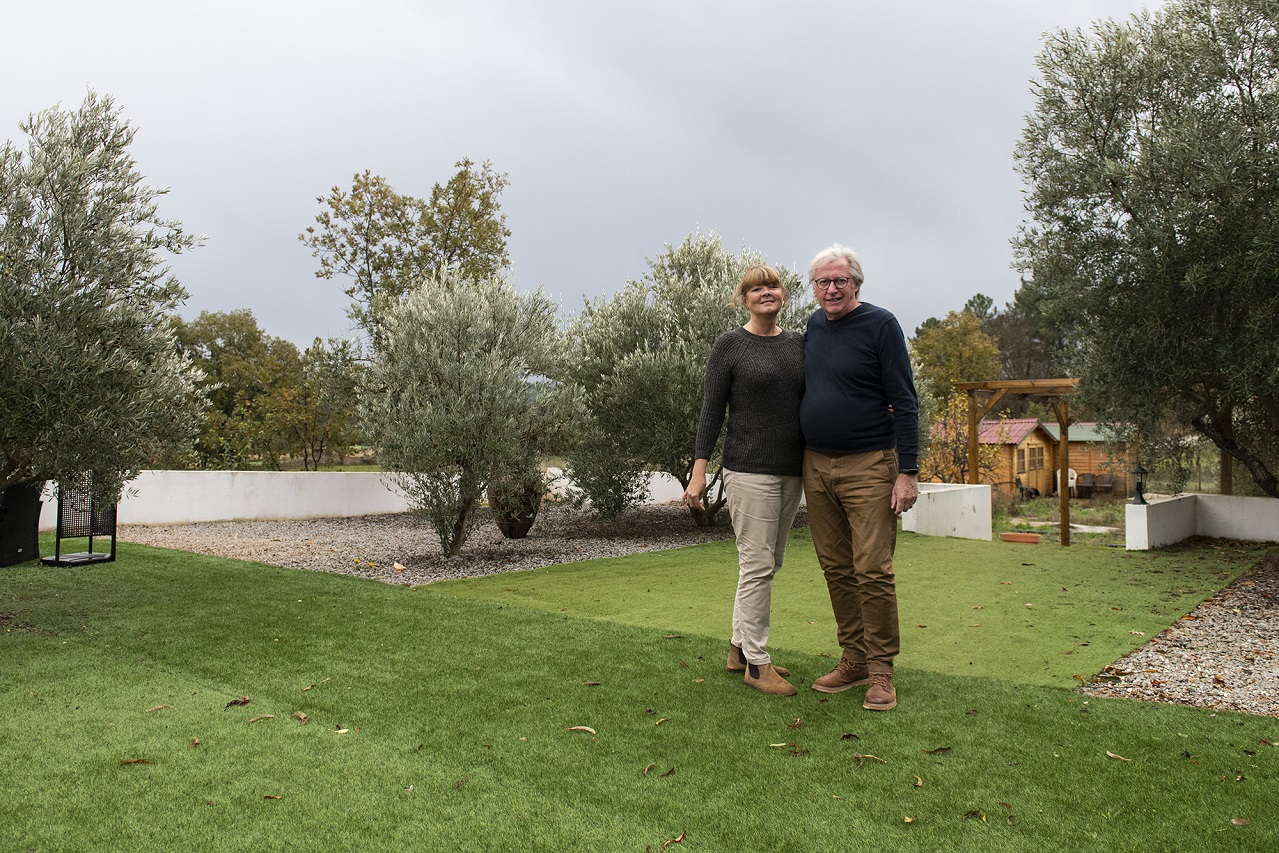
Climate, cost of living, people and accessibility are the most distinctive aspects for retirees compared to the U.K. “Money goes further here, whether it’s in daily expenses or buying property,” he said, noting that the cost of electricity and cars are much more expensive than in the U.K.
The high level of bureaucracy has once again been cited as one of the main obstacles in Portugal. The Knights family has faced several long processes with the Fundão municipal council, especially in the application for housing licensing and building.
“Our building permit cost around 800 euros. After the construction, it is necessary to provide detailed information to finances who seem to have a great deal of power in Portugal where they even have access to peoples’ bank accounts, something that would never happen in the U.K,” David explains.
It wasn’t just the bureaucratic process that contributed to the delay in the building process but also the lack of information upon arrival in the country. “There is, in fact, a foreign aid department at Fundão town hall, but we didn’t know about it,” he adds.
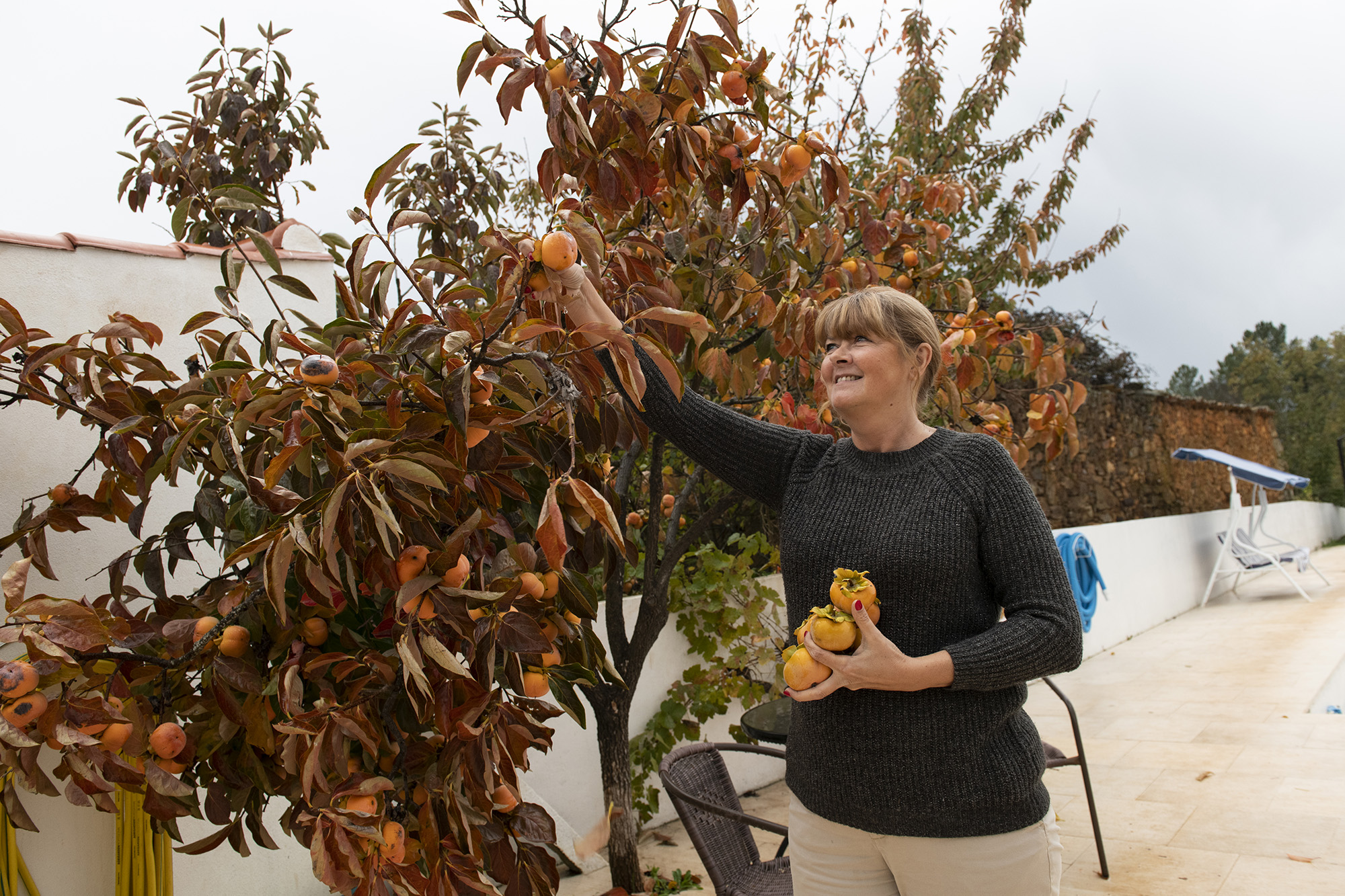
With the foreign community growing in the region with various nationalities, including Dutch, German and American, the couple does not intend to return to the U.K. “It is deteriorating by the day. It’s not a good place to be, especially because of Brexit. It was certainly a stupid decision,” said the immigrant.
After 5 years of living in Fundão, David Knights left constructive advice for his new country. “I think that Portugal should promote itself better in terms of making what it produces known abroad. The country would gain a lot from this.”